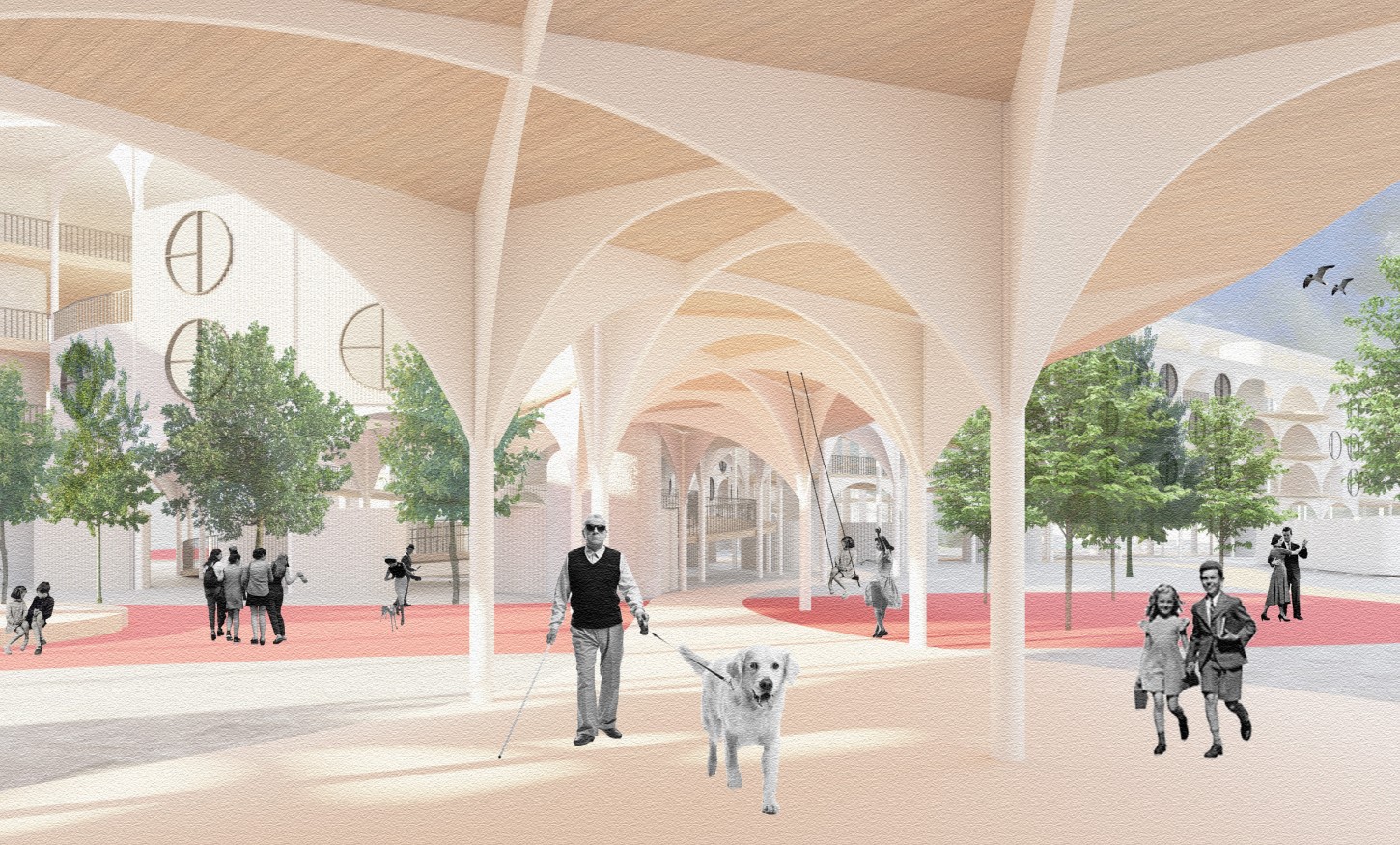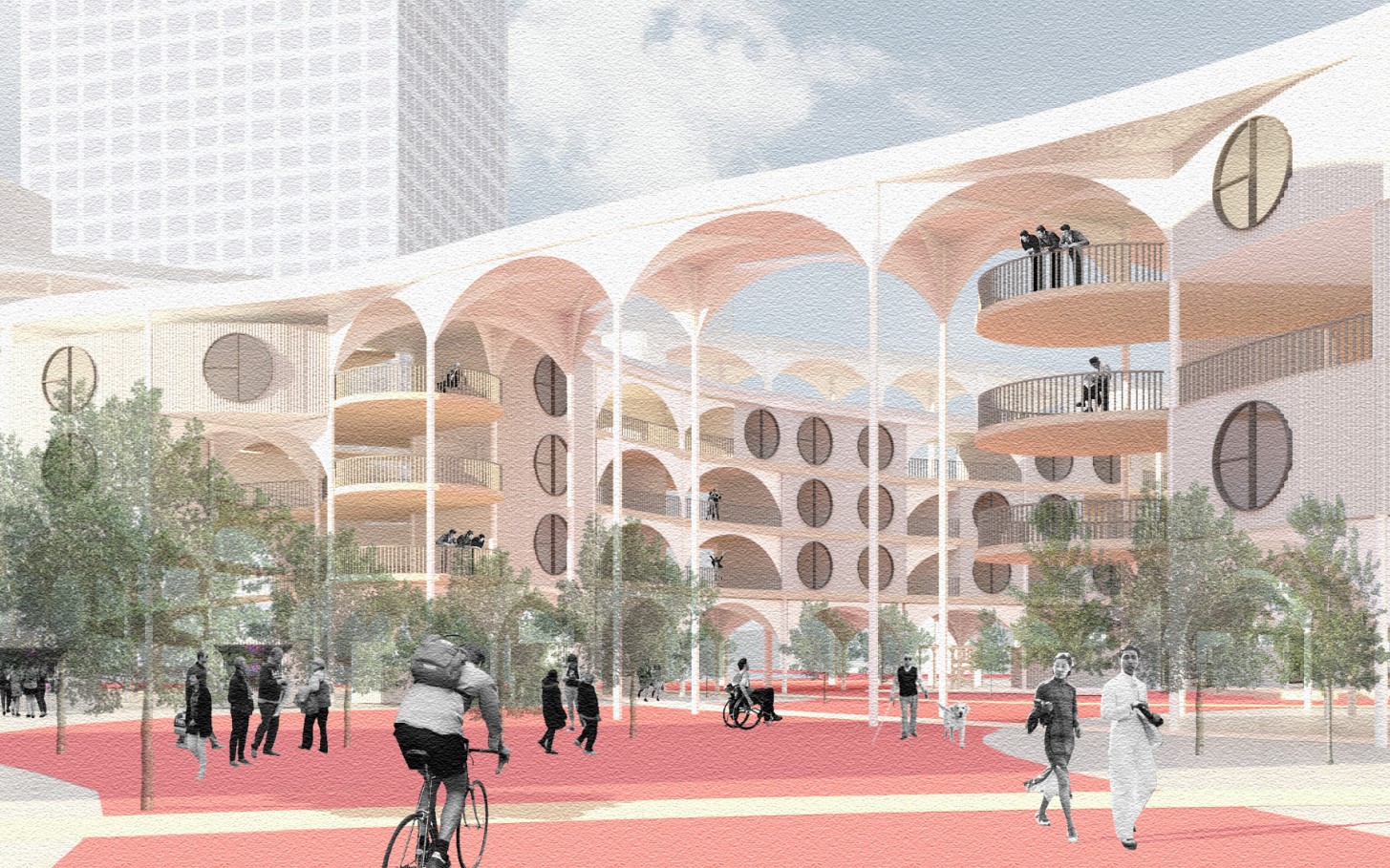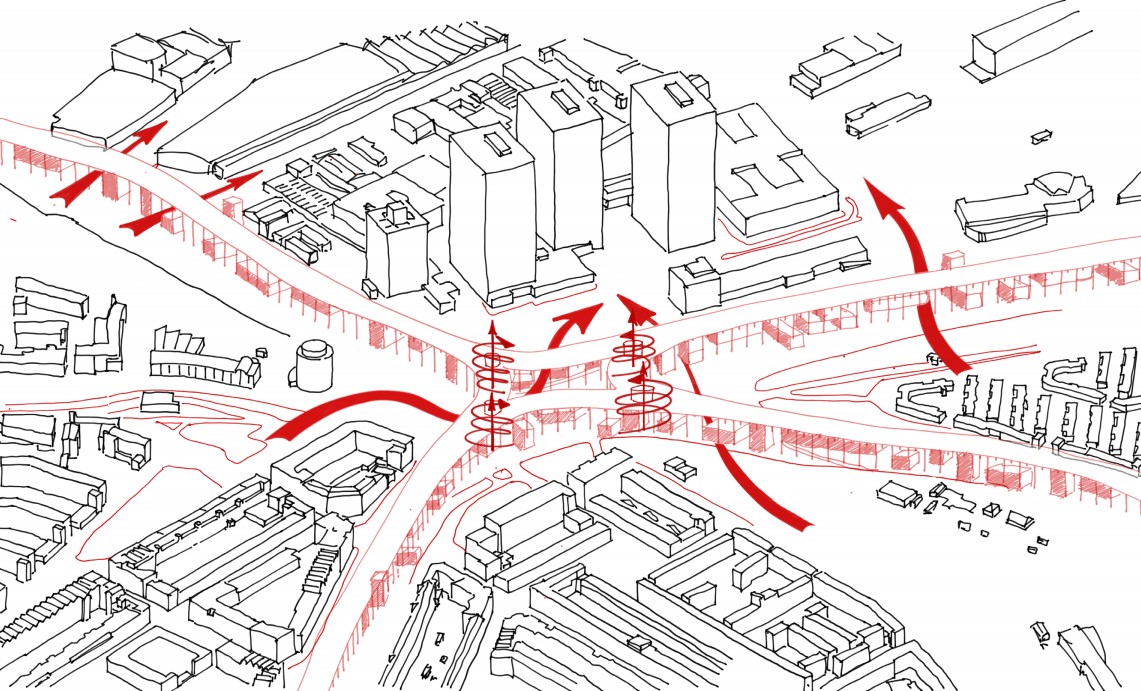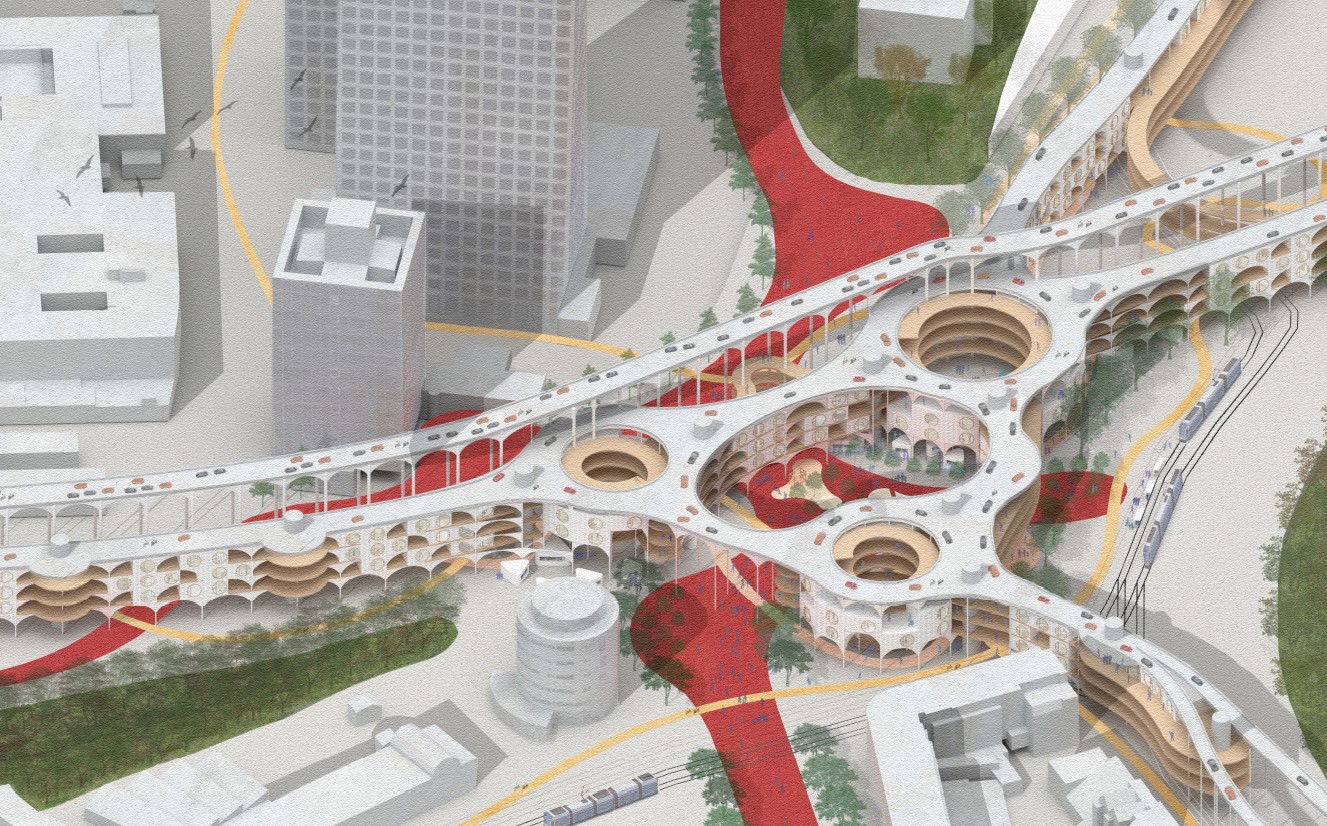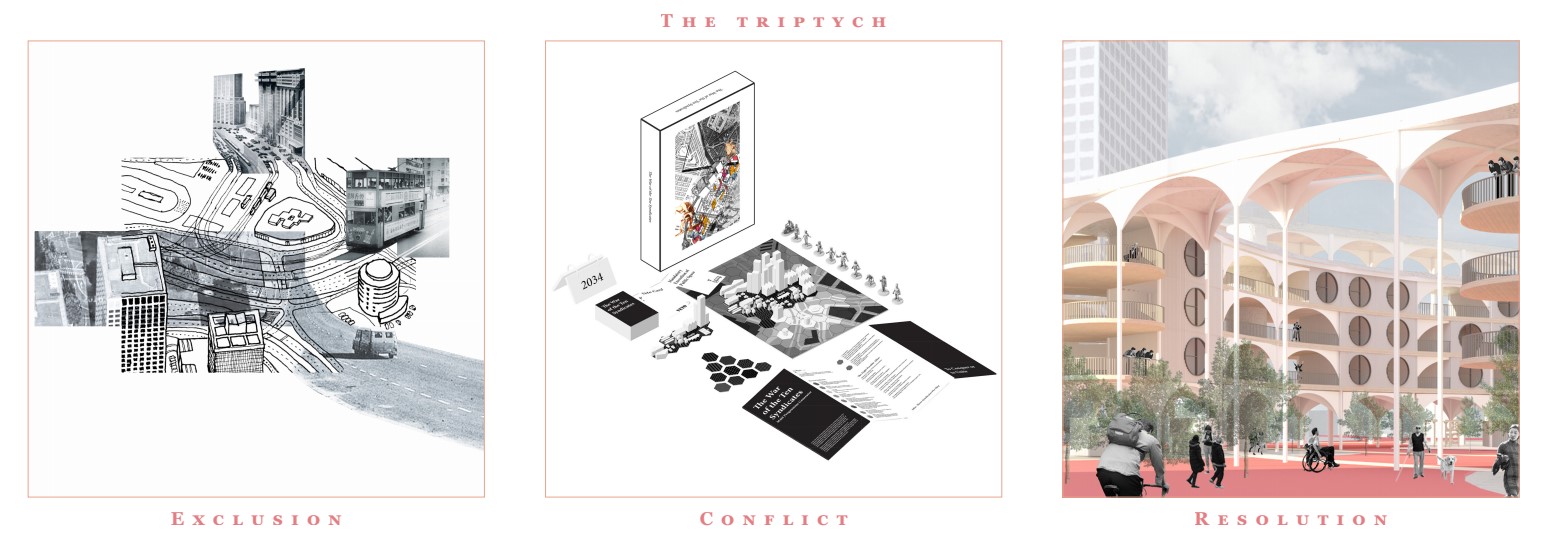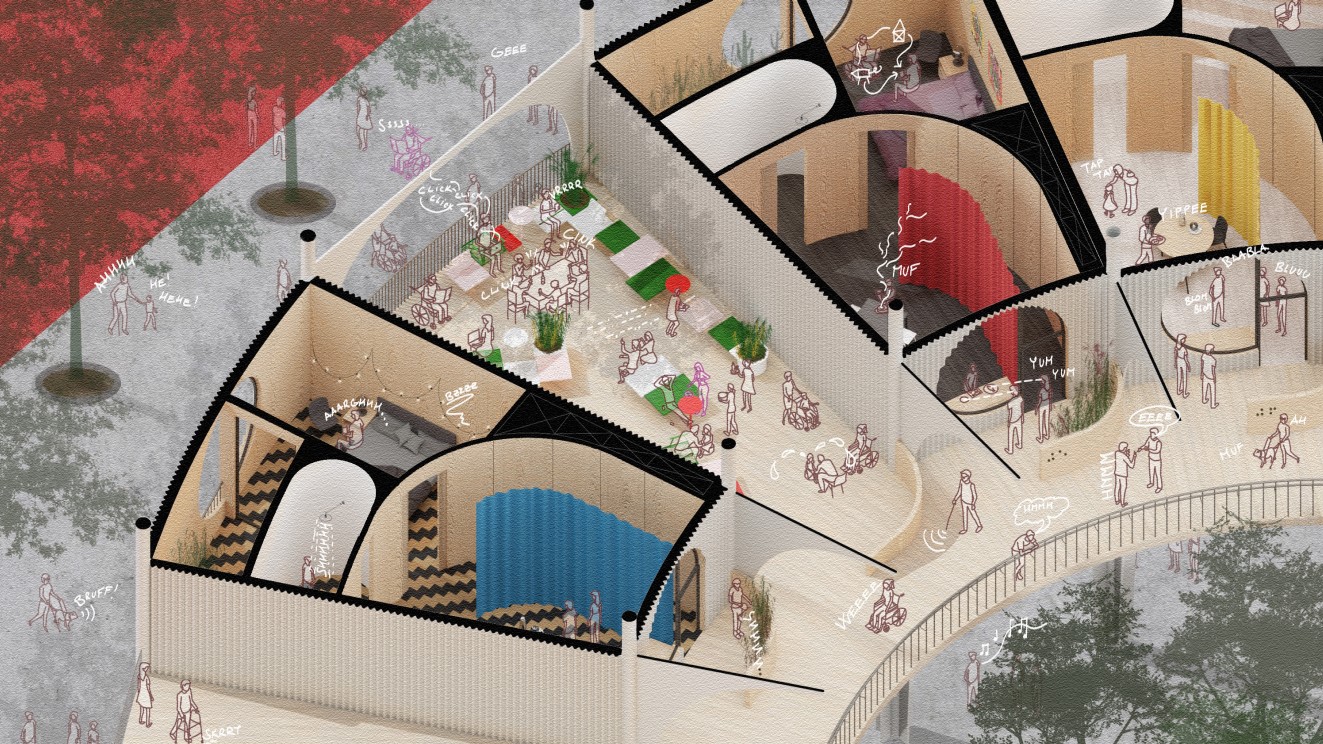Space for Humans
Students: Daniel Behro, Miguel Gallego Mauleon, Rafailia Eirini Giannoudi and Sun Ah Hwan
Title: S4H - Space for Humans
Semester: 2020
Teachers: dr. ir. Angeliki Sioli, ir. Pierre Jennen, dr. ir. Willemijn Wilms Floet
Space for Humans (S4H) is the product of the academic and architectural work done by the TU Delft Msc1 architecture students during the fall semester of the 2020/2021 Academic Year for the “Ways of Doing” studio organized by the Chair of Methods of Analysis and Imagination. Tutored by Willemijn Wilms Floet, Angeliki Sioli, and Pierre Jennen, the studio explored M4H -the last industrial harbour located in the district of Delfshaven, Rotterdam- through the use of many different documentation, analysis and mapping tools. Such exploration led through a structured path of learning and discovery that touched upon the themes of “Atmospheres, Typology, and Materiality” and, in the end, culminated in this project.
For clarity, it should be mentioned that through the design process the students were not concerned with developing an intervention for the present. It was, in fact, the aim of this studio to place their sight on the future and the challenges that it will bring. Having their temporal framework in 2050, it was not a question of density but a question of equality that concerned them. Assuming that our cities will have to endure the challenge of rapid densification, strong and successful precedent already exists of mass housing development after critical shortages, most notably, the post-war period. Therefore, the problem they faced, not only in the area in question, but in the built environment as a whole, is one of exclusion rather than of densification.
In a western society that is increasingly conscious of the importance of offering equality of opportunity for its members, the profession of architecture is still strongly male-dominated and most of the buildings are designed following -albeit unconsciously- a patriarchal agenda. Having most of what we study in architectural theory and experience in practice today developed in the past with the heterosexual, abled, middle aged white man as the modulor, it is important to offer new inclusive solutions that break with the established norm. Therefore, for 2050, M4H should become, first and foremost, a place of spatial inclusivity.
